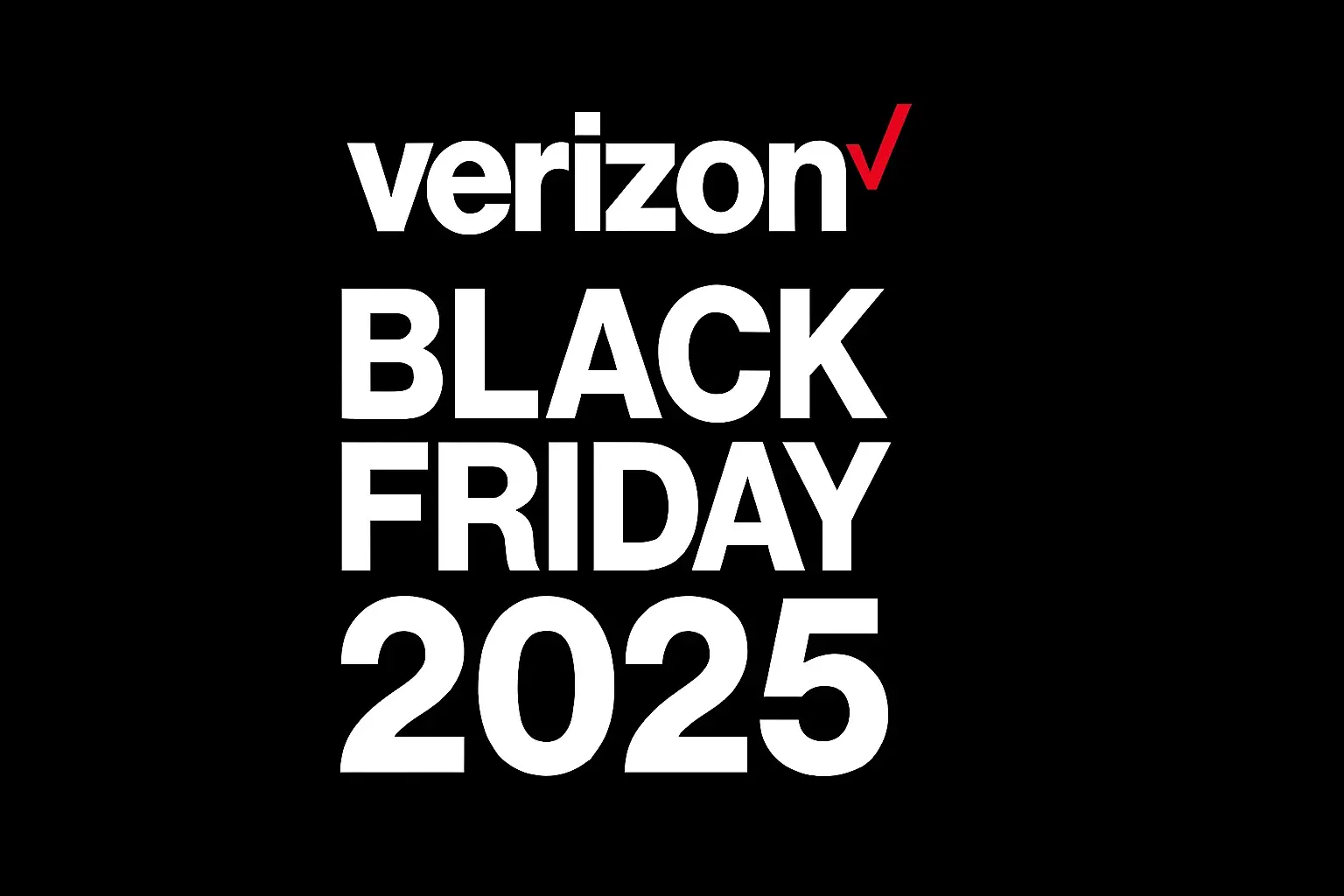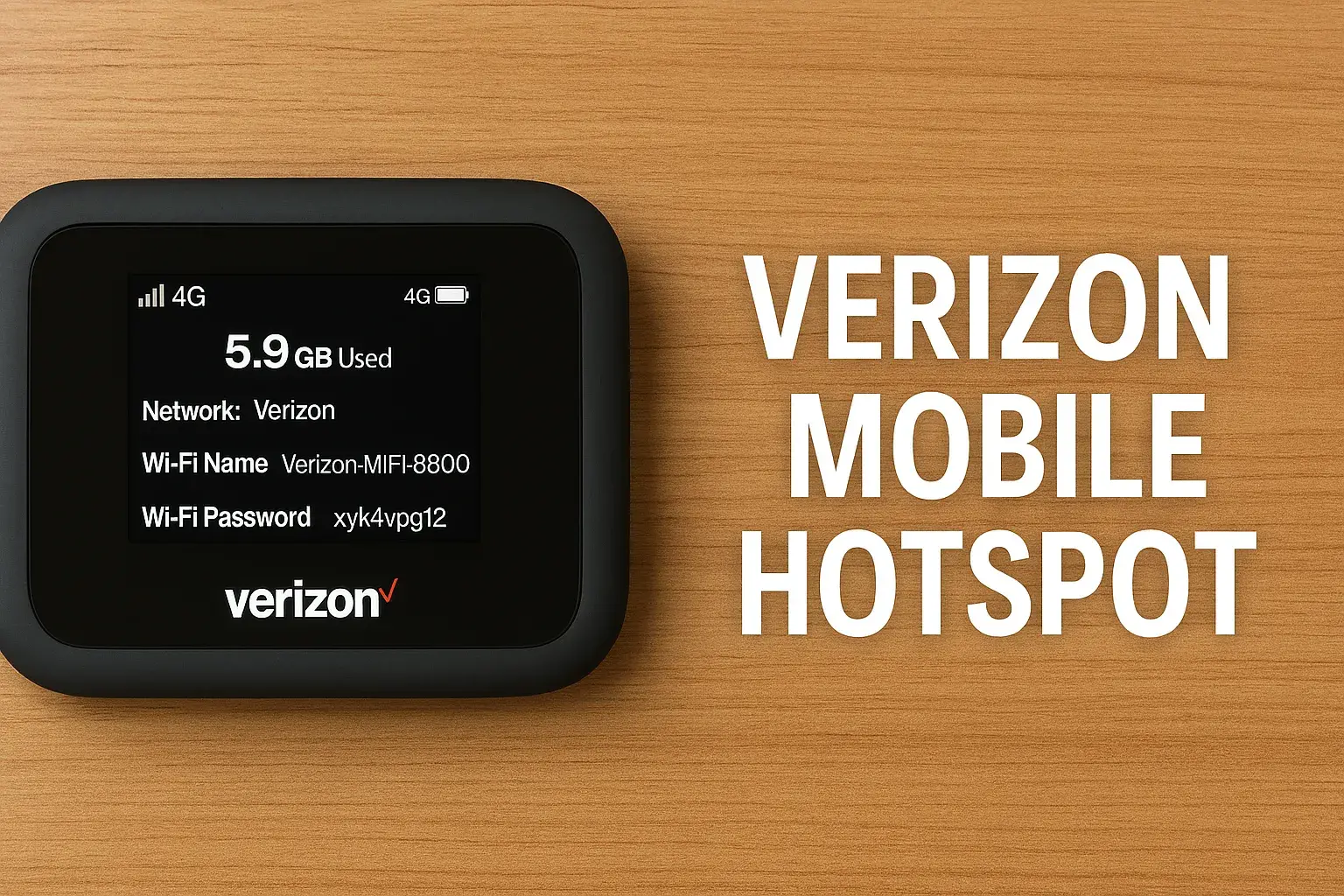Get the Best Deals on Verizon Internet and Cable

Navigating the world of internet and cable bundles can be complex, but understanding Verizon's offerings is key to unlocking the best value. This guide reveals how much Verizon internet and cable typically costs, breaking down the latest 2025-26 deals and packages to help you make an informed decision and save money.
Understanding Verizon Plans: Internet and Fios TV
Verizon offers a dual approach to home entertainment and connectivity, primarily through its high-speed Fios internet service and its Fios TV packages. Fios, which stands for Fiber Optic Service, utilizes fiber optic technology to deliver incredibly fast and reliable internet speeds, along with crystal-clear television programming. Understanding the structure of these offerings is the first step in determining the total cost of a Verizon internet and cable bundle.
Verizon's internet service is distinguished by its fiber optic network, which provides symmetrical upload and download speeds. This means that uploading large files, streaming in high definition, and engaging in video conferencing are just as seamless as downloading content. The pricing for these internet plans typically scales with the speed offered. For instance, entry-level plans might cater to basic browsing and streaming, while higher-tier plans are designed for heavy users, gamers, and multiple device households.
On the television side, Verizon Fios TV offers a variety of channel packages. These range from basic lineups with essential local channels and popular networks to comprehensive premium packages that include sports, movies, international channels, and more. The cost of Fios TV is directly tied to the number and type of channels included in the selected package. Customers can often customize their channel selection further by adding specific premium channels or sports packages.
When considering a bundle, it's important to recognize that Verizon often incentivizes customers to combine both services. Bundling can lead to significant savings compared to subscribing to internet and TV separately. However, the exact cost of a bundle will depend on the specific internet speed chosen and the Fios TV package selected. Furthermore, promotional offers, contract terms, and additional equipment rentals can all influence the final monthly bill. This guide aims to demystify these components and provide clear insights into the pricing for 2025-26.
Verizon Internet-Only Plans: Speed and Cost Breakdown
Verizon's Fios internet-only plans are a cornerstone of their connectivity offerings, providing robust speeds through their fiber optic network. For 2025-26, Verizon continues to emphasize the benefits of symmetrical upload and download speeds, a significant advantage over many cable internet providers. The cost of these plans is primarily determined by the advertised download and upload speeds. Understanding these tiers is crucial for budgeting and ensuring you select a plan that meets your household's needs without overpaying.
Understanding Speed Tiers
Verizon typically structures its Fios internet plans into several speed tiers. These are designed to cater to a wide range of users, from casual browsers to power users who demand the highest performance.
- 500 Mbps Download / 500 Mbps Upload: This is often considered a mid-range plan, suitable for households with moderate internet usage. It can comfortably handle multiple users streaming HD content, online gaming, and general web browsing.
- 750 Mbps Download / 750 Mbps Upload: A step up, this plan offers more bandwidth for households with heavier usage. It's ideal for streaming 4K content on multiple devices, frequent large file downloads and uploads, and demanding online gaming.
- 1 Gig (1000 Mbps) Download / 1000 Mbps Upload: This is Verizon's top-tier residential Fios internet plan, offering the fastest speeds available. It's designed for the most demanding users, including those who work from home with large data transfers, multiple users simultaneously engaging in high-bandwidth activities, and smart home enthusiasts with numerous connected devices.
Estimated Pricing for 2025-26
It's important to note that Verizon's advertised prices are often promotional and may require a contract or auto-pay setup. Prices can also vary by region. However, based on current trends and expected market conditions for 2025-26, here are estimated monthly costs for internet-only Fios plans:
Please note: These are estimates and actual prices may vary. Always check Verizon's official website for the most current pricing and availability in your area.
| Internet Speed (Download/Upload) | Estimated Monthly Cost (Promotional) | Typical User Profile |
|---|---|---|
| 500 Mbps / 500 Mbps | $49.99 - $64.99 | Small to medium households, moderate streaming, general use. |
| 750 Mbps / 750 Mbps | $64.99 - $79.99 | Medium to large households, heavy streaming (4K), online gaming. |
| 1 Gig (1000 Mbps) / 1 Gig (1000 Mbps) | $79.99 - $94.99 | Very large households, power users, remote work with large files, smart homes. |
These prices often exclude equipment rental fees (though some plans may include a modem/router), installation charges, and taxes. It's also common for introductory pricing to last for a specific period (e.g., 12 or 24 months), after which the price may increase to a standard rate. Always verify the terms and conditions of any offer.
For more detailed information on specific plans and their current availability, you can visit Verizon's official internet page.
Verizon Fios TV Packages: Channels and Pricing
Verizon Fios TV offers a comprehensive television experience, leveraging its fiber optic network to deliver high-definition channels with exceptional clarity. The pricing for Fios TV packages is determined by the number and type of channels included. Verizon typically offers several tiered packages, ranging from basic essential lineups to more extensive premium options, catering to diverse viewing preferences and budgets for 2025-26.
Understanding Fios TV Tiers
Verizon's Fios TV packages are generally structured as follows:
- Fios TV Local: This is the most basic package, usually including a selection of local broadcast channels (ABC, CBS, NBC, FOX, PBS) and potentially a few other popular national networks. It's ideal for viewers who primarily watch local news, network shows, and major sporting events broadcast on these channels.
- Fios TV Core: This package expands upon the Local tier, adding a wider array of popular cable channels. This typically includes news networks (CNN, Fox News, MSNBC), entertainment channels (USA, TNT, TBS, FX), and lifestyle channels (HGTV, Food Network, Discovery).
- Fios TV Preferred: This tier offers a more extensive selection of channels, including those found in the Core package, plus additional sports channels (ESPN2, NFL Network, MLB Network), movie channels (AMC, Hallmark), and more specialized content.
- Fios TV Premier: This is Verizon's most comprehensive Fios TV package, aiming to satisfy even the most avid television watchers. It includes all channels from the Preferred package and adds premium movie channels like HBO, Cinemax, Showtime, and Starz, as well as more niche sports and international channels.
Estimated Pricing for 2025-26
As with internet plans, Fios TV pricing is subject to promotional offers, contract terms, and regional availability. The following are estimated monthly costs for 2025-26. These prices typically do not include equipment rental (like set-top boxes), installation fees, or taxes and surcharges.
| Fios TV Package | Estimated Monthly Cost (Promotional) | Key Features |
|---|---|---|
| Fios TV Local | $39.99 - $54.99 | Local channels, basic national networks. |
| Fios TV Core | $64.99 - $79.99 | Core channels, news, entertainment, lifestyle. |
| Fios TV Preferred | $84.99 - $99.99 | Preferred channels, expanded sports, movies. |
| Fios TV Premier | $109.99 - $124.99 | Premier channels, all premium movie channels (HBO, Showtime, etc.), more sports. |
Customers can also customize their Fios TV experience by adding premium channel packages (like HBO Max, Cinemax, Starz, Showtime, The Movie Channel) or sports packages (like the NFL RedZone, NBA League Pass, MLB Extra Innings) for an additional monthly fee. These add-ons can significantly increase the total cost of the TV service.
For the most accurate and up-to-date information on Fios TV packages and pricing, it is recommended to visit Verizon's official Fios TV page.
Bundling Verizon Internet and Fios TV: The Best Deals
The most common and often most cost-effective way to get both Verizon internet and Fios TV is through a bundle. Bundling services typically unlocks discounts that are not available when purchasing internet and TV separately. Verizon aims to make these bundles attractive by combining popular speed tiers with well-rounded TV packages. For 2025-26, these bundles are designed to offer a clear value proposition for consumers seeking a comprehensive home entertainment solution.
Common Bundle Combinations and Estimated Costs
Verizon frequently offers bundles that pair specific internet speeds with popular Fios TV packages. The exact pricing can fluctuate based on ongoing promotions, contract lengths, and your specific location. Below are estimated monthly costs for common bundle configurations for 2025-26. Remember to factor in potential equipment rental fees, installation costs, and taxes.
| Internet Speed | Fios TV Package | Estimated Bundle Monthly Cost (Promotional) | Key Benefits |
|---|---|---|---|
| 500 Mbps / 500 Mbps | Fios TV Core | $99.99 - $119.99 | Balanced speed for most households, comprehensive channel lineup. |
| 750 Mbps / 750 Mbps | Fios TV Preferred | $119.99 - $139.99 | Higher speed for demanding users, expanded entertainment options. |
| 1 Gig (1000 Mbps) / 1 Gig (1000 Mbps) | Fios TV Premier | $149.99 - $169.99 | Maximum speed for power users, ultimate TV channel selection including premium movies. |
| 500 Mbps / 500 Mbps | Fios TV Local | $79.99 - $94.99 | Budget-friendly option for essential services. |
These bundle prices often include a promotional discount for a set period, typically 12 or 24 months. After this period, the price may revert to a standard rate, which can be significantly higher. It's crucial to understand the duration of promotional pricing and the standard rate that will apply afterward.
Key Considerations for Bundles:
- Contract Length: Many Verizon deals require a 1- or 2-year contract. Breaking a contract early can incur substantial early termination fees.
- Equipment Fees: While some plans might include a modem/router, Fios TV often requires set-top boxes, which typically come with a monthly rental fee per box.
- Installation: Professional installation might be included for free with some promotions, or it could be an additional charge.
- Taxes and Surcharges: These are almost always added to the monthly bill and can increase the total cost by 10-20%.
- Data Caps: Verizon Fios internet generally does not have data caps, which is a significant advantage for heavy users.
To find the most accurate and current bundle deals available in your area, it's best to visit Verizon's official bundles page or contact their sales department directly.
Exploring Verizon 5G Home Internet: An Alternative Option
While Fios fiber optic internet is Verizon's flagship broadband service, the company also offers 5G Home Internet in many areas. This wireless home internet solution uses Verizon's 5G cellular network to provide connectivity to your home. It's an attractive option for those in areas not served by Fios or for individuals looking for a potentially more flexible and affordable alternative. For 2025-26, Verizon is expanding its 5G Home Internet footprint and improving its service capabilities.
How Verizon 5G Home Internet Works
Verizon 5G Home Internet utilizes a small receiver/router device placed in your home. This device connects wirelessly to Verizon's 5G network towers, providing internet access to your home's Wi-Fi network. Unlike Fios, it does not rely on physical fiber optic cables running to your house.
Pricing and Speed for 5G Home Internet (2025-26 Estimates)
Verizon typically offers two main tiers for its 5G Home Internet service:
- 5G Home Internet (Standard Speed): This tier is designed for general internet use, including streaming, browsing, and video calls. Speeds can vary significantly based on network congestion and signal strength but are generally advertised to be in the range of 75-300 Mbps download.
- 5G Home Internet (Ultra Wideband): This premium tier leverages Verizon's faster Ultra Wideband 5G spectrum. It offers significantly higher speeds, often comparable to Fios plans, with download speeds potentially ranging from 300 Mbps up to 1 Gbps in optimal conditions.
Pricing for Verizon 5G Home Internet is generally straightforward and often includes the equipment:
| Service Tier | Estimated Monthly Cost (Promotional) | Typical Speeds (Download) | Key Benefits |
|---|---|---|---|
| 5G Home Internet (Standard) | $40 - $60 | 75-300 Mbps | Affordable, no data caps, easy setup, no annual contract. |
| 5G Home Internet (Ultra Wideband) | $60 - $80 | 300 Mbps - 1 Gbps | High speeds, competitive with Fios, no data caps, no annual contract. |
Important Notes on 5G Home Internet:
- Availability: 5G Home Internet is not available everywhere. Its availability depends on Verizon's 5G network coverage in your specific location.
- Performance Variability: Speeds can fluctuate based on signal strength, network congestion, and the specific 5G band being used (e.g., C-band vs. mmWave).
- No Data Caps: A significant advantage of Verizon's 5G Home Internet is the absence of data caps.
- No Annual Contracts: Unlike many Fios plans, 5G Home Internet typically does not require a long-term contract.
- Bundling: While 5G Home Internet can sometimes be bundled with other Verizon services (like mobile plans for discounts), it's not typically bundled with Fios TV in the same way Fios internet is.
For individuals in Fios-less areas or those seeking a simpler, contract-free internet solution, Verizon 5G Home Internet is a compelling option. You can check availability and specific pricing at Verizon's 5G Home Internet page.
Factors Influencing Your Verizon Bill
Understanding the base prices for Verizon internet and Fios TV is only part of the equation. Several other factors can significantly influence your total monthly bill. Being aware of these elements will help you avoid unexpected charges and ensure you're getting the best possible deal. These factors remain consistent for 2025-26, so paying attention to them is crucial.
1. Promotional Pricing vs. Standard Rates
Most advertised prices from Verizon are promotional rates designed to attract new customers. These discounts are usually valid for a limited time, typically 12 or 24 months. After this introductory period, the price will increase to the standard rate, which can be considerably higher. Always ask about the duration of the promotion and the standard rate that will apply afterward.
2. Contract Length and Early Termination Fees
Many of Verizon's Fios bundles require a 1- or 2-year contract. While these contracts often secure the promotional pricing, they also come with a penalty if you terminate the service before the contract term ends. Early termination fees (ETFs) can range from $10 to $20 per month remaining on the contract, potentially adding up to hundreds of dollars if you cancel early. Verizon 5G Home Internet typically does not require a contract, offering more flexibility.
3. Equipment Rental Fees
Internet: While some Fios internet plans might include a modem/router, others may charge a monthly rental fee for the equipment. You often have the option to purchase your own compatible router to avoid these fees, though compatibility can sometimes be an issue.
Fios TV: Set-top boxes and DVRs for Fios TV almost always incur a monthly rental fee. The cost typically depends on the type of box (e.g., standard HD box vs. multi-room DVR). Renting multiple boxes will increase your monthly bill.
4. Installation Fees
Professional installation is often required for Fios services. While some promotions may waive this fee, it can otherwise range from $50 to $100 or more. Self-installation might be an option for some services, potentially saving on costs, but it requires more technical comfort.
5. Taxes, Surcharges, and Fees
This is a significant factor that many customers overlook. Your advertised monthly price will be increased by federal, state, and local taxes, as well as various regulatory fees and Verizon-specific surcharges. These can add anywhere from 10% to 25% (or even more in some areas) to your base price, making a $70/month plan closer to $85-$95 in reality.
6. Premium Channels and Add-ons
If you opt for a Fios TV package and decide to add premium channels like HBO, Showtime, Starz, or sports packages such as NFL RedZone or NBA League Pass, these will incur additional monthly charges. Each premium channel or package has its own subscription fee.
7. Bundling Discounts
Conversely, bundling internet and TV services usually results in a discount compared to subscribing to each service individually. The size of this discount varies depending on the specific package and current promotions. Sometimes, bundling with Verizon mobile plans can also unlock additional savings.
8. Data Usage (for 5G Home Internet)
While Fios internet typically has no data caps, Verizon's 5G Home Internet plans also generally do not impose data limits. However, it's always wise to confirm this with Verizon, as policies can sometimes change.
To get the most accurate estimate of your total monthly bill, it's recommended to use Verizon's online tools to build your desired package and view a detailed breakdown of all potential charges, or speak directly with a Verizon sales representative.
How to Find the Best Verizon Deals for 2025-26
Securing the best possible deal on Verizon internet and Fios TV requires a strategic approach. With various promotional offers, contract terms, and package combinations, it's easy to overspend if you're not careful. Here’s a step-by-step guide to help you find the most cost-effective solutions for 2025-26.
Step 1: Assess Your Needs
Before looking at deals, understand what you truly need:
- Internet Speed: How many people use the internet in your household? What are your primary activities (streaming, gaming, remote work, basic browsing)? For most households, 500 Mbps is sufficient. Power users might need 750 Mbps or 1 Gig.
- TV Channels: What types of channels do you watch most often? Do you need premium movie channels (HBO, etc.) or specific sports packages? Be realistic to avoid paying for channels you'll never watch.
- Contract Flexibility: Are you comfortable signing a 1- or 2-year contract for a lower price, or do you prefer the flexibility of a no-contract option like 5G Home Internet?
Step 2: Check Availability in Your Area
Verizon's Fios service is not available everywhere. Use Verizon's online tool to enter your address and see if Fios internet and TV are offered. If not, you'll need to consider Verizon 5G Home Internet or other providers.
Step 3: Visit Verizon's Official Website
Verizon's website is the primary source for current promotions. Look for sections like "Internet Deals," "TV Packages," and "Bundles." Pay close attention to:
- New Customer Offers: These are usually the most aggressive discounts.
- Bundle Discounts: See how much you save by combining internet and TV.
- Contract Terms: Note the length of any required contract and the associated early termination fees.
- Included Equipment: Clarify if a modem/router or set-top boxes are included or if there are rental fees.
- Promotional Period: Understand how long the introductory price lasts.
Explore pages like Verizon's main deals page for a consolidated view of offers.
Step 4: Compare Bundles vs. Standalone Services
Sometimes, a bundle offers the best value. Other times, if you only need one service or can find a better deal on one service elsewhere, it might be cheaper to subscribe separately. Calculate the total cost of a bundle versus the cost of individual services (including potential fees) to make an informed comparison.
Step 5: Consider 5G Home Internet as an Alternative
If Fios isn't available or if you're looking for a contract-free option, investigate Verizon 5G Home Internet. Check its availability and compare its pricing and speed tiers to Fios. Remember, 5G Home Internet typically doesn't bundle with Fios TV.
Step 6: Contact Verizon Sales Directly
Don't hesitate to call Verizon's sales department. Sales representatives often have access to deals or promotions that may not be prominently advertised online. Be prepared to state your needs and ask specific questions about pricing, contract terms, and hidden fees.
Step 7: Read the Fine Print
This is arguably the most critical step. Before signing any agreement, thoroughly read the terms and conditions. Pay attention to:
- Equipment rental costs
- Installation fees
- Taxes, surcharges, and regulatory fees
- The price after the promotional period ends
- Early termination fees
Step 8: Look for Bundle Discounts with Mobile Plans
If you are a Verizon mobile customer, inquire about potential discounts or perks for bundling your home internet and TV services with your mobile plan. Verizon often offers significant savings for customers who consolidate their services.
Step 9: Be Aware of Timing
Promotional offers can change frequently. While the 2025-26 period is our focus, deals might be more aggressive during certain times of the year (e.g., holidays, back-to-school season). However, don't wait indefinitely if you need service sooner.
By following these steps, you can navigate Verizon's offerings effectively and secure a deal that aligns with your budget and service requirements.
Verizon vs. Competitors: A Quick Comparison
When evaluating Verizon's internet and cable offerings, it's essential to see how they stack up against major competitors. The landscape of internet and TV providers varies significantly by region, but generally, Verizon competes with companies like Xfinity (Comcast), Spectrum (Charter), AT&T, and various smaller regional providers. For 2025-26, the core differences often lie in technology, pricing structures, and service availability.
Technology: Fiber vs. Cable vs. Wireless
- Verizon Fios: Primarily uses fiber optic technology. This offers symmetrical upload/download speeds, lower latency, and generally higher reliability. It's considered the gold standard for home internet performance but is only available in select areas.
- Xfinity/Spectrum: Primarily use coaxial cable networks (DOCSIS technology). Cable internet offers high download speeds but typically has significantly slower upload speeds. Performance can also be more susceptible to neighborhood congestion.
- AT&T: Offers both fiber (AT&T Fiber) and DSL (traditional copper phone lines). AT&T Fiber is comparable to Verizon Fios in performance but also has limited availability. DSL speeds are generally much slower than Fios or cable.
- Verizon 5G Home Internet: Uses wireless 5G technology. Performance can be excellent in strong signal areas, offering speeds competitive with cable and sometimes Fios, but it can be more variable due to signal strength and network congestion. It's a good alternative where wired options are limited.
Pricing and Bundles
- Verizon: Often positions itself as a premium provider, especially with Fios. Their pricing can be competitive, particularly with bundles, but introductory offers are crucial. 5G Home Internet offers a more budget-friendly, contract-free option.
- Xfinity/Spectrum: Known for aggressive promotional pricing for new customers, often with steep price increases after the introductory period. They offer a wide range of bundles and often have broader availability than Fios.
- AT&T: Pricing for AT&T Fiber is competitive with Verizon Fios where available. Their DSL plans are typically cheaper but much slower. AT&T also offers bundles, often with their DirecTV streaming service.
Channel Selection (TV Services)
- Verizon Fios TV: Offers a strong selection of channels with good HD quality. Their packages are well-structured, and premium channel add-ons are available.
- Xfinity/Spectrum: Provide extensive channel lineups, often with more sports and international options in their higher tiers. They also offer their own streaming TV platforms.
- AT&T: Bundles often include DIRECTV STREAM, which provides a robust channel selection similar to traditional cable.
Contracts and Fees
- Verizon Fios: Often requires a 1- or 2-year contract for bundles.
- Xfinity/Spectrum: Frequently uses 1- or 2-year contracts.
- AT&T: Contracts vary depending on the service.
- Verizon 5G Home Internet: Typically no contract.
All providers are known for various fees (equipment rental, installation, regulatory fees) that increase the final bill. It's essential to compare the total monthly cost, including all fees and taxes, after any promotional period.
Key Takeaway for 2025-26
Verizon Fios remains a top choice for speed and reliability in areas where it's available, especially for those who value symmetrical speeds. However, its availability is a limiting factor. For many, Xfinity or Spectrum might be the only cable options, offering high download speeds at competitive introductory prices but with slower uploads. AT&T offers a similar fiber experience to Fios where available. Verizon's 5G Home Internet is a growing contender, offering a flexible, contract-free alternative with competitive speeds in many areas. The "best" provider ultimately depends on your location, specific needs, and tolerance for contracts and price increases.
Frequently Asked Questions About Verizon Bundles
Understanding the specifics of Verizon's internet and cable bundles can bring up many questions. Here are answers to some of the most common inquiries for 2025-26 to help clarify your options.
Q1: Is Verizon Fios available everywhere?
No, Verizon Fios is a fiber optic network and is only available in specific regions, primarily in the Northeastern United States and parts of California and Texas. You must check Verizon's website with your exact address to confirm availability.
Q2: What is the difference between Verizon Fios and Verizon 5G Home Internet?
Verizon Fios uses a physical fiber optic cable network to deliver internet to your home, offering very high and stable speeds. Verizon 5G Home Internet is a wireless service that uses Verizon's 5G cellular network to provide internet. It's generally available in more areas than Fios but can have more variable speeds depending on signal strength.
Q3: Can I bundle Verizon 5G Home Internet with Fios TV?
Typically, no. Fios TV is designed to work with Verizon Fios internet. Verizon 5G Home Internet is a standalone internet service and is not bundled with Fios TV packages. If you want both TV and internet from Verizon and have Fios availability, a Fios bundle is the way to go.
Q4: Are Verizon's advertised prices the final price?
No, advertised prices are almost always promotional and do not include taxes, surcharges, equipment rental fees, or potential installation costs. The final price will be higher than the advertised rate. Always look for a detailed breakdown of all charges.
Q5: Do Verizon Fios plans have data caps?
Verizon Fios internet plans generally do not have data caps, allowing for unlimited data usage. This is a significant advantage for heavy internet users. Verizon 5G Home Internet also typically does not have data caps.
Q6: What happens when my Verizon promotional period ends?
After the promotional period (usually 12 or 24 months) concludes, your monthly bill will increase to the standard rate for the services you are receiving. It's crucial to know what this standard rate is before signing up.
Q7: Can I use my own modem/router with Verizon Fios?
Yes, in most cases, you can use your own compatible modem/router with Verizon Fios to avoid monthly equipment rental fees. However, you should verify compatibility with Verizon's support to ensure optimal performance and connectivity.
Q8: How do I get the best deal on Verizon services?
To get the best deal, assess your needs, check availability, compare bundles versus standalone services, contact sales directly, and always read the fine print regarding contracts, fees, and post-promotional pricing. Bundling with Verizon mobile plans can also offer additional savings.
Q9: Are there any hidden fees with Verizon?
While not always "hidden," the most common additional charges include taxes, surcharges, equipment rental fees (for TV set-top boxes and sometimes internet modems), and installation fees. Early termination fees apply if you break a contract.
Q10: How does Verizon Fios compare to cable internet providers like Xfinity or Spectrum?
Verizon Fios uses fiber optic technology, offering symmetrical upload/download speeds and generally lower latency, making it superior for demanding tasks like gaming and large file transfers. Cable providers like Xfinity and Spectrum offer high download speeds but much slower upload speeds and can be more susceptible to congestion. Fios availability is limited compared to cable.
By understanding these common questions and answers, consumers can make more informed decisions when choosing Verizon internet and cable services.
In conclusion, understanding the cost of Verizon internet and cable for 2025-26 requires a detailed look at their Fios and 5G Home Internet offerings, alongside their Fios TV packages. While Fios internet speeds can range from $49.99 to over $94.99 per month for speeds up to 1 Gig, Fios TV packages vary from $39.99 for basic local channels to over $124.99 for premium content. Bundling these services can offer significant savings, with estimated costs for common bundles ranging from $79.99 to $169.99 per month. Verizon 5G Home Internet presents a contract-free alternative, typically priced between $40 and $80 per month. Always remember to factor in potential equipment rental fees, installation charges, and the inevitable taxes and surcharges, which can add a substantial amount to your monthly bill. By carefully assessing your needs, comparing promotional offers, and scrutinizing the fine print, you can secure the best value from Verizon's connectivity solutions.





